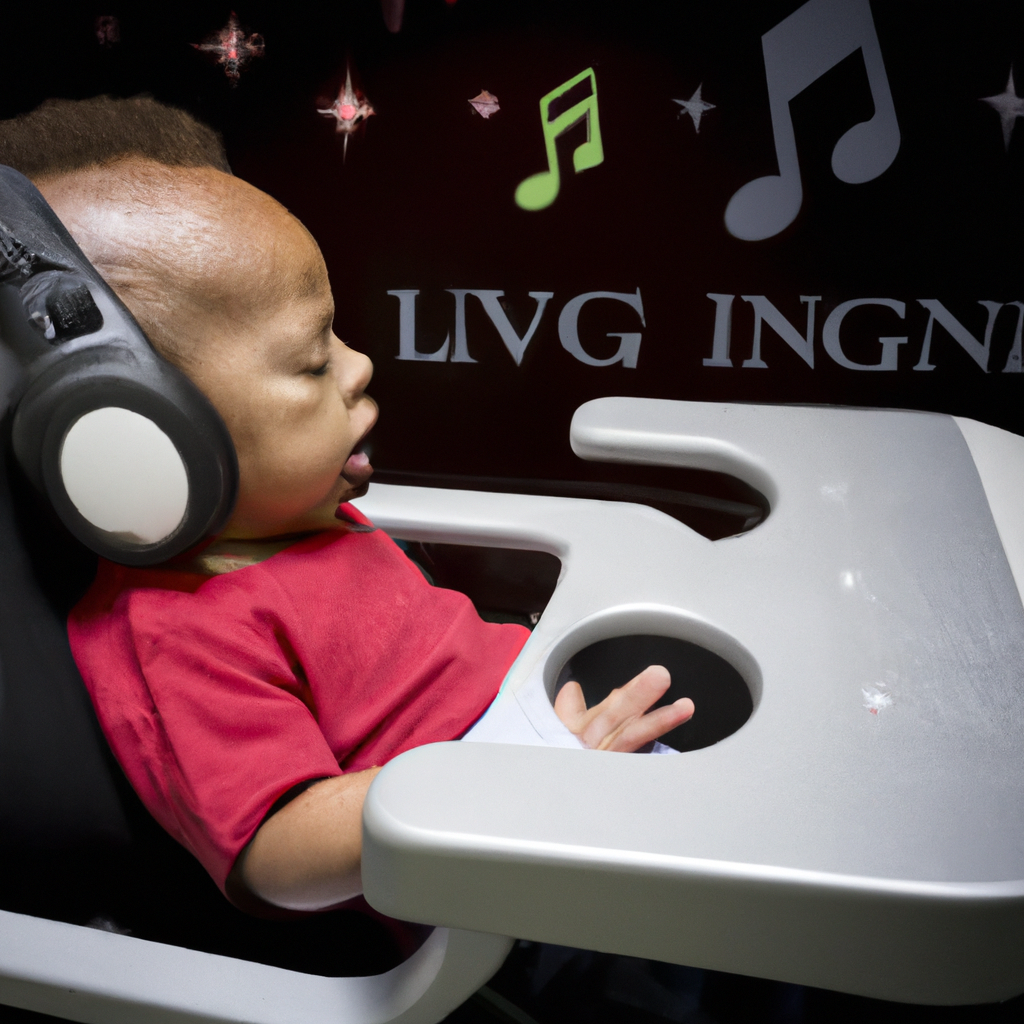In the hushed lullaby whispered by a doting parent, in the rhythmic tapping of tiny feet, and in the euphonious laughter echoing through the hallways of homes, lies an extraordinary force: the power of music. Unlocking a dimension where emotions sway, connections form, and imaginations flourish, music weaves its enchanting spell on young hearts and minds. Einstein once prophetically proclaimed, “If I were not a physicist, I would probably be a musician.” Little did he know that his words would echo through generations, unraveling the profound impact music has on the development of our young ones. From fostering language skills to enhancing cognitive ability, from cultivating social connections to nurturing creativity, this article delves into the mesmerizing realm of music and uncovers its extraordinary benefits in the crescendo of childhood development. Brace yourselves, for a symphony of insight awaits – a symphony composed by the endearing melodies of childhood.
1. Symphony of Growth: Unleashing the Potential of Music in Child Development
Music has the power to ignite the imagination, touch the heart, and stimulate the mind. It has long been recognized as a universal language that brings people together, transcending cultural barriers. But did you know that music also plays a crucial role in child development?
From the moment a baby is born, they are instinctively drawn to the rhythmic patterns and melodic tones of music. It sparks their curiosity and engages their senses, creating a symphony of growth in their young minds. Research has shown that exposure to music at an early age can have a profound impact on a child’s cognitive, emotional, and social development.
First and foremost, music enhances brain development. When children actively participate in making music, whether it’s banging on pots and pans or playing a violin, their brains are stimulated in unique ways. Various studies have shown that musical training can improve memory, attention, and problem-solving skills. It also helps to strengthen the neural connections that are crucial for language and mathematical abilities.
Moreover, music fosters emotional well-being in children. When listening to or creating music, they experience a range of emotions, from joy to sadness, excitement to calmness. It allows them to express themselves freely and develop a deep sense of self-awareness. Music also serves as a powerful outlet for children to channel their emotions, promoting emotional regulation and stress relief.
Furthermore, music nurtures social skills and collaboration. Group activities such as singing in a choir or playing in a band teach children the importance of teamwork, cooperation, and communication. They learn to listen to others, take turns, and respect different perspectives. These valuable social skills are not only essential for successful music performances but also for navigating through various situations in life.
In conclusion, the potential of music in child development cannot be understated. Its benefits range from enhanced brain development and emotional well-being to fostering social skills and collaboration. So let us embrace the symphony of growth that music offers, and provide children with opportunities to explore, create, and flourish through the power of music.
2. Striking the Right Chord: Music’s Transformative Influence on Young Minds
Music has an undeniable power to transform young minds in ways that few other things can. Its ability to strike the right chord with children is truly remarkable. Here, we explore the myriad ways in which music influences and shapes the development of young minds.
1. Cognitive Development:
From an early age, music has been shown to enhance cognitive development in children. Learning to play an instrument or even just being exposed to music helps stimulate various areas of the brain, improving memory, attention, and problem-solving skills.
2. Emotional Well-being:
Music has a unique way of expressing and evoking emotions, making it a powerful tool for enhancing emotional well-being. Whether it’s listening to uplifting melodies or playing an instrument as an emotional outlet, music provides a sense of comfort, relaxation, and joy to young minds.
3. Language and Communication Skills:
Listening to music promotes language and communication development in children. Through rhythmic patterns and melodic structures, music aids in the acquisition of language skills such as phonetics, vocabulary, and grammar. Singing along to songs and nursery rhymes also improves pronunciation and enhances verbal fluency.
4. Social Connection:
Music brings people together, and this holds true for young minds as well. Participating in group music activities, like choirs or bands, fosters a sense of belonging and teamwork. It allows children to build social connections, develop empathy, and learn how to cooperate with others.
5. Self-Expression and Confidence:
Music offers a platform for young minds to express themselves creatively and develop a sense of individuality. Playing an instrument or composing music not only enhances artistic abilities but also boosts self-confidence and fosters a positive self-image.
In conclusion, the transformative influence of music on young minds is a force to be reckoned with. Its impact on cognitive, emotional, linguistic, and social development is profound, making it an invaluable tool for nurturing well-rounded individuals. So let us celebrate the power of music and ensure that every young mind gets the opportunity to strike the right chord.
3. Harmonizing Success: The Multifaceted Benefits of Music in Child Development
Music has long been recognized as a powerful tool for enhancing child development. The multifaceted benefits of music in various areas of a child’s life are truly remarkable. From emotional and cognitive development to social skills and physical coordination, the harmonizing effects of music have a far-reaching impact on a child’s overall well-being.
Emotional Development: Music has the ability to deeply connect with a child’s emotions, helping them express and regulate their feelings. It can uplift their spirits, provide a sense of comfort, and even offer an outlet for emotional release. Whether it’s through listening, singing, or playing an instrument, music enables children to explore a wide range of emotions in a healthy and engaging way.
Cognitive Development: The benefits of music on a child’s cognitive abilities are truly astounding. Research shows that engaging with music can improve memory, attention span, and problem-solving skills. Learning to read musical notation, for example, can enhance a child’s ability to understand patterns and sequences, which are essential cognitive skills in various academic subjects.
Social Skills: Participating in music activities encourages teamwork, cooperation, and communication among children. Whether it’s singing in a choir, playing in an ensemble, or even just sharing their musical creations with others, children learn to work together, listen to one another, and respect different perspectives. These social interactions foster empathy, self-confidence, and an appreciation for diversity.
Physical Coordination: Music and movement are inseparable companions in child development. From dancing to the rhythm of a song to playing an instrument with precision, music enhances a child’s motor skills and coordination. It requires them to synchronize their movements with the beat, improving their balance, dexterity, and overall physical control.
Creativity and Imagination: Music ignites the flames of creativity and imagination within children. Playing an instrument or composing their own melodies allows them to unleash their artistic potential and think outside the box. The freedom and self-expression that music provides inspire children to explore their unique talents, fostering a deep appreciation for the arts and a lifelong love for creative endeavors.
The influential power of music in child development cannot be overstated. It offers profound benefits to children’s emotional well-being, cognitive abilities, social skills, physical coordination, and creative capacities. Embracing music as an integral part of a child’s upbringing can truly harmonize their path to success, nurturing their holistic growth and unlocking their limitless potential.
4. Melodic Minds: Exploring the Powerful Impact of Music on Children’s Cognitive Growth
Music has been an integral part of human culture since ancient times, and its influence on our cognitive growth cannot be understated. In recent years, researchers have been delving into the fascinating link between music and children’s cognitive development, uncovering a myriad of benefits that go beyond simple enjoyment.
One of the most noticeable impacts music has on children is its ability to enhance their language skills. Listening to and participating in music activates areas of the brain responsible for language processing, promoting better verbal communication and fluency. Moreover, studies have shown that children exposed to music from an early age often have an expanded vocabulary and a better grasp of grammar.
But the cognitive benefits of music extend far beyond language acquisition. Research has found that exposure to music helps develop pattern recognition skills in children. When children learn to recognize and follow musical patterns, it enhances their ability to identify patterns in other areas of life, such as in mathematics or problem-solving. This newfound skill becomes invaluable as children progress academically and face increasingly complex challenges.
Furthermore, music has a profound impact on emotional intelligence in children. Listening to different genres and engaging in musical activities provides children with a platform to explore and express their emotions. This fosters self-awareness, empathy, and emotional regulation. Playing instruments or singing in a group also promotes collaboration and teamwork, teaching children important social skills that are crucial for their overall development.
Moreover, music has been found to improve memory and concentration in children. Learning to play an instrument or even just actively engaging with music exercises the brain’s working memory, which in turn strengthens memory capacity. Studies have shown that students who participate in music education consistently outperform their peers in tasks that require concentration and focus.
In conclusion, the power of music in shaping children’s cognitive growth cannot be emphasized enough. From language skills to pattern recognition, emotional intelligence, and memory enhancement, music plays a vital role in their overall development. So, let us encourage children to explore the melodic minds within them and embrace the wondrous impact music can have on their journey of cognitive growth.
Music is a powerful force that can transform the life of a child in powerful ways. By exposing children to the power of music, we can unlock abilities to enrich their education, spark creativity, and increase their overall development. With music, children can blast off on an extraordinary journey filled with exploration, inspiration, and growth.


